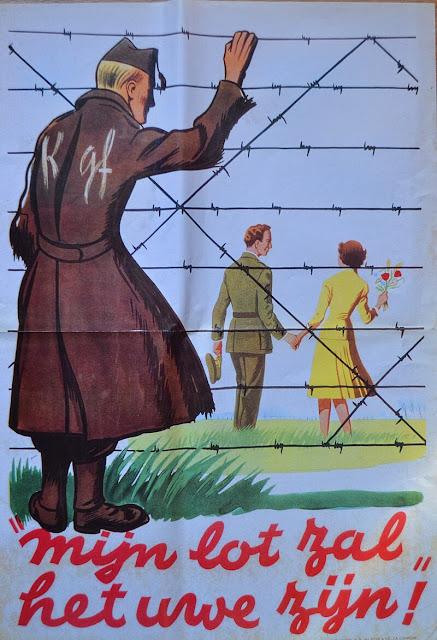Maria Michi in Rome, Open City. She also played the role of the welcoming Italian turned prostitute in Paisan. Both films were directed by Roberto Rossellini and filmed immediately after World War Two. Why am I featuring her? See below.
Tokyo's population was down to 200,000 people due to evacuations from the bombed city.
Australian troops took Balikpapan's oil facilities.
American operations conclude on the Ryukyus.
The submarine USS Barb fired rockets on Kaihyo Island near Sakhalin,the first instance of a submarine firing such weapons.
Mountbatten is ordered to launch Operation Zipper, the liberation of Malaya, in August.
The 1945 Sheikh Bashir Rebellion broke out in Burao and Erigavo in British Somaliland against the British.
"The American Farmer" was the cover story in Newsweek.
Louis Till, father of Emmett Till who is remembered for being lynched at age 14 in 1955, was executed by the U.S. Army at Aversa, Italy for two counts of rape and murder.
The elder Till had married the younger Till's mother when they were 18, over the objections of her parents. The marriage was not a happy one and she divorced him after he physically attacked her. A conviction from that resulted in his joining the U.S. Army in order to avoid a prison sentence.
While Tills' conviction and execution are debated, the circumstances of the crime, which involved a home invasion and rape, are vile, and it seems that the trial was well conducted.
What's this have to do with the younger Till's lynching? Absolutely nothing. The junior Till never knew his father as the relationship had disintegrated when he was a mere infant.
There may be something, however, to take away about the horrors of the postwar world. Armies are made up of all kinds of people, particularly conscripted armies. Putting somebody in uniform so they wouldn't go to jail was fairly common. There was a guy in boot camp with me who was there for that very reason, and I know a very successful person who essentially had the same thing occur to him.
And wars are a huge violation of the moral order. Invading armies have always been associated with crime, with rape being a particularly common one. Occupying armies, and even garrison armies, have a fair amount of moral depredation they bring on as well.
This certainly doesn't apply to everyone in uniform in these conditions, and not even the majority of those in uniform, in most modern armies, but it's frankly the case that World War Two created a vast amount of prostitution in Europe, some of it of a massively desperate type as portrayed in Rossellini's Paisan, and discussed in Atkinson's The Day of Battle. Italy was quite frankly particularly hard hit as its infrastructure was far less developed than that of France or Germany, and it's population lived much more primitively and much closer to the poverty line. Indeed, the vast bulk of the Italian population even before the war lived in what Americans of the same period would have regarded as poverty.
In these conditions, Italian women became targets. Many prostituted themselves. Some entered what might be regarded as a species of concubinage. A biography of Bill Mauldin notes, for example, that for a period of time both Mauldin and another Stars and Stripes reporter kept girls in their mid teens, something that would have been regarded as a crime in the U.S. given the girls' very young age. Paisan, as noted, depicts a middle class Italian girl descending into poverty, and then trying to grasp a straw out of it that nearly appears. The classic The Man In The Grey Flannel Suit depicts a middle class American businessman who was an officer during the war engaging in a secret affair that produces a child while a soldier in Italy.
Concubinage is one thing. Rape quite another, but murder is beyond the pale even for most whose morals decay in wartime. But not for everyone. And of course, we haven't touched on the Red Army, for whom wholescale rape, and then murder, of the women of the countries they overran was routine. The percentage of Soviet soldiers that went home as rapist likely isn't known, but it was appreciable, and appreciated apparently by Soviet women, which lead to that generations domestic lives being notoriously turbulent.
Last edition:
Labels: 1940s, 1945, Australian Army, Automobiles, Battle of Balikpapan, Borneo, Dutch Army, Germany, Growing up in the 1970s, Music, New Wave Music, Personalities, Post WWII Occupation of Germany, Rock Music, World War Two







.jpg)
_Maria_Michi.png)
.jpg)






